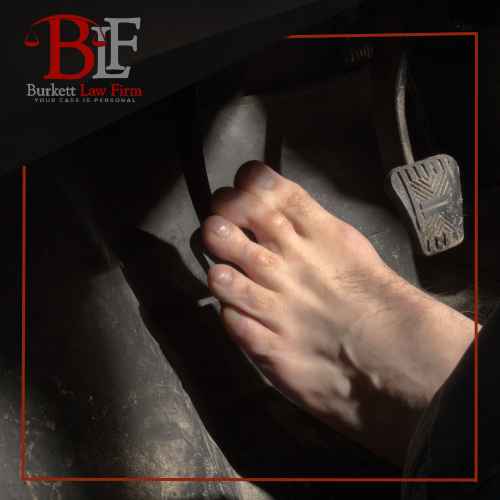
You’re taking a risk every time you get behind the wheel of your car. Even if you’re the safest driver on the road, you could still find yourself managing the aftermath of an accident.
According to the Texas Department of Transportation, 256,338 people were injured in motor vehicle traffic crashes in 2019. And that doesn’t even take into account the thousands of people who were killed on the state’s roadways.
It’s imperative to take the right steps after a car accident, as doing so helps you obtain medical treatment and protect your legal rights. Here are five things you should do:
Step 1: Move to a safe place (if possible)
It’s best to move your vehicle out of traffic after a car accident. This minimizes the risk of another accident, while also allowing traffic to start flowing again.
However, if you’re unable to drive your vehicle to the shoulder of the road or another safe place, stay where you are and wait for help to arrive. Serious injuries and/or a disabled vehicle make it impossible (and dangerous) to drive.
Step 2: Call 911
Even if it’s a minor fender bender and you don’t think you suffered any injuries, it’s still best to call 911.
By doing so, police and an ambulance can respond and investigate the scene. While the police officer maintains safety in the area and creates an official crash report, paramedics can treat you on the scene and transport you to a local hospital for additional examination.
Should you neglect to call 911, you’re left to handle the aftermath of the crash on your own which can lead to mistakes that may hurt you in an insurance claim process.
Step 3: Obtain medical treatment
It’s easy to opt against this if you can’t visually see your injuries. The same holds true if you’re feeling like your normal self after the crash.
But remember this: Not all injuries reveal themselves right away.
For example, if you suffer a concussion, you may not experience symptoms, such as a headache and dizziness, until after several hours. By seeking medical treatment, you’re not taking a risk with your health.
Of course it’s your hope that the medical team doesn’t find any serious injuries, but if they do, you’re in a position to receive top-notch care without delay for a faster healing process. You’ll also have official medical records to prove your accident-related injuries for the insurance claim process.
Step 4: File an insurance claim

As your health allows, contact your insurance agent to start the claims process.
This sounds like a simple task, but you can quickly find yourself facing one challenge after the next. Here are some things you can do to protect yourself:
Review your car insurance policy
You pay for coverage every month. If you’re in an accident, you should expect to receive benefits as outlined by the terms and conditions of your policy.
- You can do this online or via telephone. Either way, contacting your agent is the first step in the claims process. It’s essential that you tell the truth, but don’t say anything that could place the blame on you. After all, you don’t have all the facts of the car accident so don’t make conclusions. Stick to the basics and remember that you’re under no legal obligation to answer any questions at this time.
Doing so allows you to avoid mistakes that could cost you time and money. For example, a claims adjuster may contact you with tricky questions. Just the same, your insurance company may send you a check marked as “final payment.” This is a ploy, in some cases, as they want you to accept less money than your policy says you should receive.
Tip: Should your injuries prohibit you from filing an insurance claim, ask a family member or friend to assist you.
Step 5: Contact a Corpus Christi personal injury attorney
By contacting a personal injury attorney, you can learn more about your legal rights and how to protect them. Furthermore, your attorney can provide guidance on the best approach and the type of compensation that may be available to you.
In most cases, it makes sense to consult with an attorney before or shortly after filing a car insurance claim.
Your insurance company may attempt to take advantage of you if you don’t have an attorney on your side. But when you let them know you have top-notch Corpus Christi legal representation, everything changes. You can feel more confident that you’re on the best path to physical and financial recovery.
Speaking of recovery, your injury attorney will discuss with you more about the damages typically associated with a car accident which can include:
- Medical bills, such as doctor visits, surgical procedures, medication, and medical devices.
- Lost wages, if you’re unable to go back to work after your accident.
- Pain and suffering, which is compensation for the emotional and physical distress caused by your accident.
- Loss of companionship, such as if your injuries interfere with personal relationships.
Take these steps with The Burkett Law Firm on your side
If you or a loved one has been injured in a car accident anywhere in Texas, don’t hesitate to call on The Burkett Law Firm Corpus Christi personal injury attorneys to learn more about your legal rights and pursue maximum compensation for your damages. Contact us online today or give us a call to schedule your free consultation.





